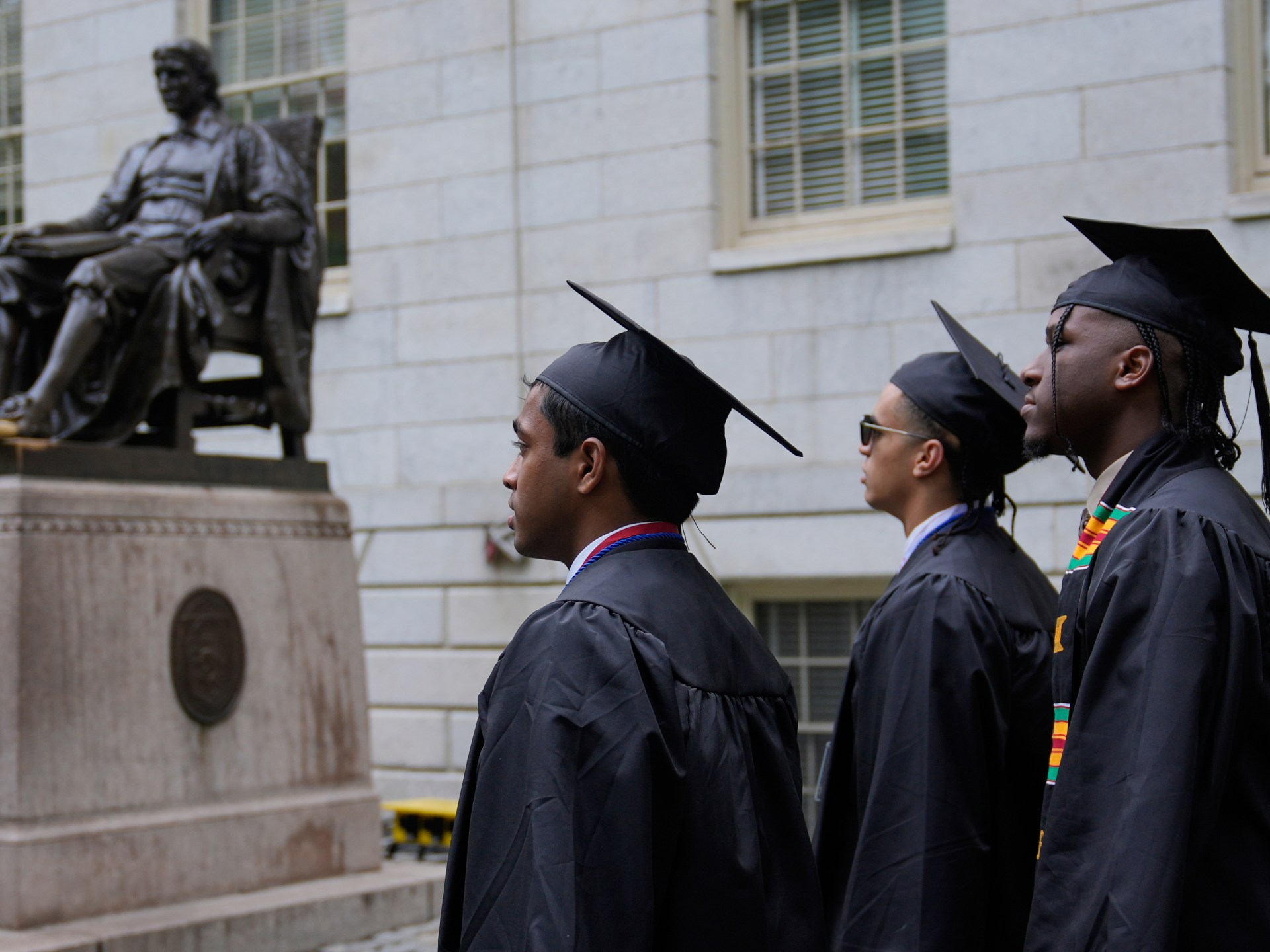In response to a new law that prevents its international students from entering the United States, Harvard University has expanded its already-extended lawsuit against President Donald Trump’s administration.
The prestigious Ivy League school filed a revised complaint on Thursday alleging that Trump’s most recent executive order is infringing on students’ rights.
Trump issued an executive order just one day earlier, claiming that “it is necessary to restrict the entry of foreign nationals who seek to enter the United States solely or principally” to attend Harvard.
He referred to Harvard’s international students as “a class of aliens” whose arrival “would be detrimental to the United States’ interests.” He claimed that as a result of this, the Immigration and Nationality Act had the authority to refuse them entry.
Harvard, however, dismissed that claim in the court filing on Thursday as the most recent salvo in Trump’s months-long campaign to harm the university.
According to the amended complaint, “The President’s actions are not intended to defend the “interests of the United States,” but rather to launch a government vendetta against Harvard.
Further, it claimed that the Trump administration was trying to evade a previous court order that had prevented Harvard from registering foreign students by issuing a new executive order to restrict students’ entry.
Trump’s most recent attack on Harvard’s foreign students was requested by US District Judge Allison Burroughs in Massachusetts.
More than 7, 000 F-1 and J-1 visa holders and their dependents have “become pawns in the government’s growing campaign of retaliation,” according to Harvard.
After serving for a second term as president, Trump launched his campaign against Harvard and other well-known universities earlier this year. He attributed it to the universities for failing to respond more harshly to the Palestinian solidarity demonstrations that started popping up on their campuses following Israel’s occupation of Gaza.
The president vowed to outlaw foreign students from the US who took part in the demonstrations and called them anti-Semitic. Meanwhile, protest organizers claim that their objectives were peaceful and that a select few people’s actions have tarnished the movement as a whole.
Trump has also been accused of using the protests to sway more authority over the nation’s universities, including Columbia University, one of the Ivy League schools, and private schools like Harvard.
Columbia was forced to cut off $400 million in federal funding in the first few months of March, following the same-day protests on national campuses across the country.
The school later agreed to a list of demands made by the Trump administration, including a review of its Middle Eastern studies program and changes to its disciplinary procedures.
Additionally, a list of requirements was provided for Harvard University to follow. However, it turned down because it worried that the restrictions would restrict its ability to study.
For the Trump administration, the government should allow the federal government to audit its hiring and admissions procedures in order to “establish viewpoint diversity.” They also demanded that Harvard abandon its diversity programs. When those demands were not met, it then began to defraud Harvard of its billion-dollar federal funding.
Trump also threatened to revoke the school’s tax-exempt status and forbid it from receiving any upcoming federal research grants.
However, Harvard’s international students’ attacks have threatened to reduce tuition costs as well. Worldwide, almost a quarter of Harvard’s student body comes from abroad.
The Department of Homeland Security made the announcement in May that Harvard would no longer be able to access a system called the Student Exchange Visitor Program, where it is required to log information from foreign students.
If Harvard students were currently enrolled there on a student visa, that would have forced them to transfer to another university. Additionally, it would have prevented Harvard from accepting any more international students.
Harvard, however, criticized the Trump administration’s actions as “retaliatory” and “unlawful.”
Judge Burroughs granted Harvard’s request for a restraining order on May 23 to halt the restriction’s effect. The Trump administration has since continued to put pressure on Harvard and other institutions.
Source: Aljazeera

Leave a Reply